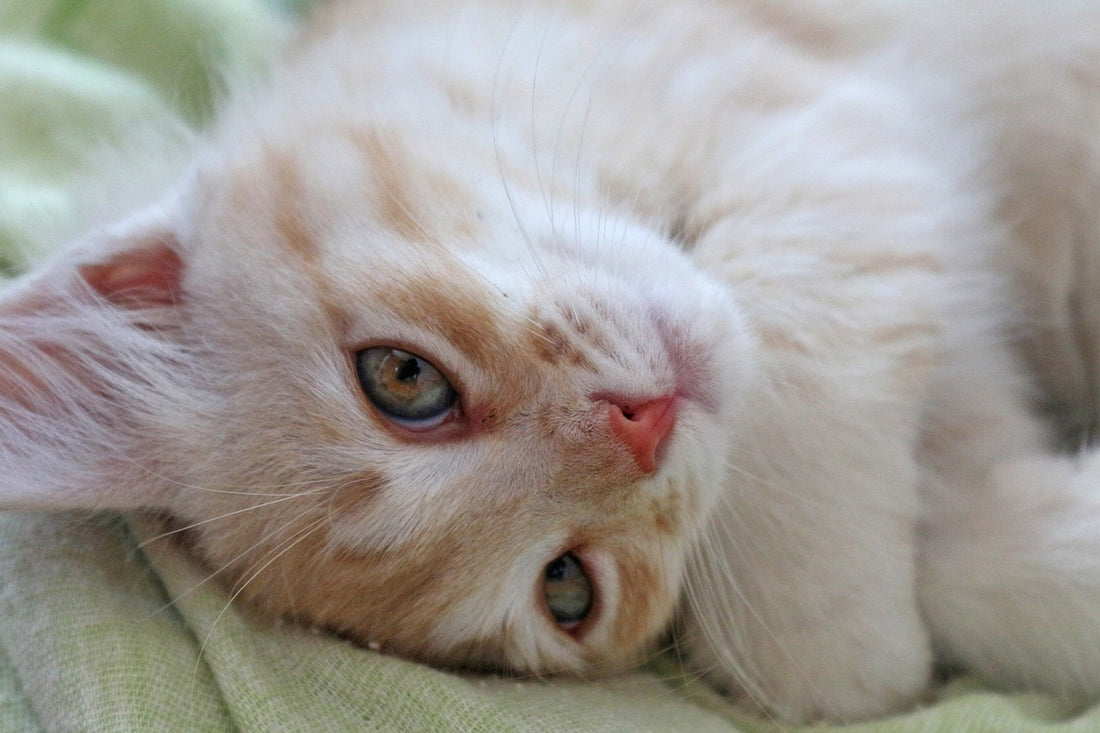
What is FIV?
Share
What is FIV?
FIV, or Feline Immunodeficiency Virus, is a disease that affects cats, much like HIV (Human Immunodeficiency Virus) affects humans. In fact, FIV and HIV share similarities, and many of the general principles that apply to human HIV also hold true for FIV in cats. The virus attacks a cat’s immune system and can eventually lead to feline AIDS. However, FIV progresses slowly, and many infected cats remain symptom-free for years. The goal for cat owners is to manage the condition and extend the healthy period of their cat’s life.
While the life expectancy of an FIV-positive (FIV+) cat can vary, studies show that approximately 18% of FIV+ cats pass away within five years of infection. Another 18% may survive but suffer from chronic illnesses due to their compromised immune systems. However, many FIV+ cats live comfortably for years with minimal health issues.
For more detailed information on FIV, you can visit the Cornell Feline Health Center or refer to resources from the American Association of Feline Practitioners.
How is FIV Diagnosed?
The most common way to diagnose FIV is through a blood test, typically done at your veterinarian's office. If a cat tests positive, it’s often recommended to confirm the diagnosis with another test, such as a PCR (Polymerase Chain Reaction) test or Western Blot. These tests provide added assurance that the cat is truly infected.
For kittens under six months old, a positive test may not necessarily indicate active infection. This is because FIV antibodies from the mother can be transferred to the kitten during nursing. In these cases, it’s best to retest the kitten once it reaches six months of age, after the mother's antibodies have worn off.
If one cat in a multi-cat household tests positive for FIV, it’s crucial to test all the other cats. Cats that are negative should be tested annually, as they are at higher risk of becoming infected. While it’s generally not necessary to isolate FIV-positive cats from healthy ones, knowing each cat’s status will help you take the right precautions.
How Does a Cat Get Infected with FIV?
The most common way FIV is transmitted is through deep bite wounds, often resulting from fights between cats. Less common transmission routes include sexual contact or infected blood transfusions. Casual contact, such as sharing food bowls or grooming, is very unlikely to transmit the virus.
Mother-to-kitten transmission is rare but possible, and kittens born to FIV-positive mothers may initially test positive due to the antibodies transferred through nursing. However, these kittens typically revert to negative status as they age.
In a stable household, isolating an FIV+ cat isn’t usually necessary unless it’s likely to fight with other cats. However, you should avoid introducing new cats into the household, as this could lead to fighting and further virus transmission.
What Should You Do If Your Cat Is FIV Positive?
Here are some important lifestyle changes to consider if you have an FIV+ cat:
1. Keep Your Cat Indoors
To protect your FIV+ cat and reduce the spread of the virus to other animals, it’s essential to keep your cat indoors. Outdoor cats are at a higher risk of being exposed to diseases, and the stress of transitioning to an indoor lifestyle can be minimized by gradually acclimating your cat to its new environment.
2. Avoid Raw Foods
FIV+ cats are more susceptible to infections, so it’s essential to avoid feeding them raw foods, especially raw meat, which can harbor parasites and pathogens. Stick to commercially available, reputable cat foods to ensure your cat’s nutritional and health needs are met.
3. Vaccination Considerations
There is some debate about the benefits of vaccinating an FIV+ cat. Some studies suggest that vaccines might stimulate the virus, though this is still a subject of research. In general, if you live in an area where vaccinations are required, or if your cat spends time outdoors, it’s important to maintain regular vaccinations. However, if your cat is strictly indoors and no other cats in the household are at risk, you may choose to forgo some vaccinations.
4. Parasite Control
FIV+ cats are more vulnerable to infections from fleas, worms, and mites. It's vital to keep up with regular parasite control. Consult your veterinarian about which products are most suitable for your cat’s needs.
5. Immune Support
While some products claim to boost a cat’s immune system, there’s limited scientific evidence to support these claims. One product, LTCI by TCyte®, has shown promise in helping FIV+ cats, but its availability is limited. Antioxidant supplements, such as Superoxide Dismutase, have also been studied for their potential benefits in improving immune function. Always consult with your vet before introducing new treatments.
Regular Monitoring is Key
FIV+ cats should have a check-up at least twice a year, with blood panels and urinalysis included. It’s crucial to monitor your cat for any signs of illness, such as weight loss or changes in behavior. Even minor changes can be significant in an FIV+ cat and should be addressed promptly.
Medications for FIV+ Cats
Currently, there is no cure for FIV, but antiviral treatments, such as AZT (Retrovir®), have been used to manage symptoms in FIV+ cats with certain conditions like oral inflammation or neurological signs. However, AZT should only be used when symptoms appear, and your vet will monitor your cat for any potential side effects. Other medications are generally not recommended due to their potential toxicity.
Managing the Risk for Immune-Suppressed Owners
If you or anyone in your household is immune-suppressed (such as individuals undergoing chemotherapy or those with HIV), it's important to be cautious when living with an FIV+ cat. Immune-suppressed individuals are more susceptible to infections, and an FIV+ cat may pose an increased risk due to its own immune system challenges. If possible, limit exposure to the FIV+ cat or consider the risks carefully.
FIV is a manageable condition, and with the right care, your FIV+ cat can lead a comfortable and healthy life. The key is early detection, lifestyle adjustments, and regular veterinary care. If you have any concerns about FIV, always consult your veterinarian for advice tailored to your cat’s specific needs.
